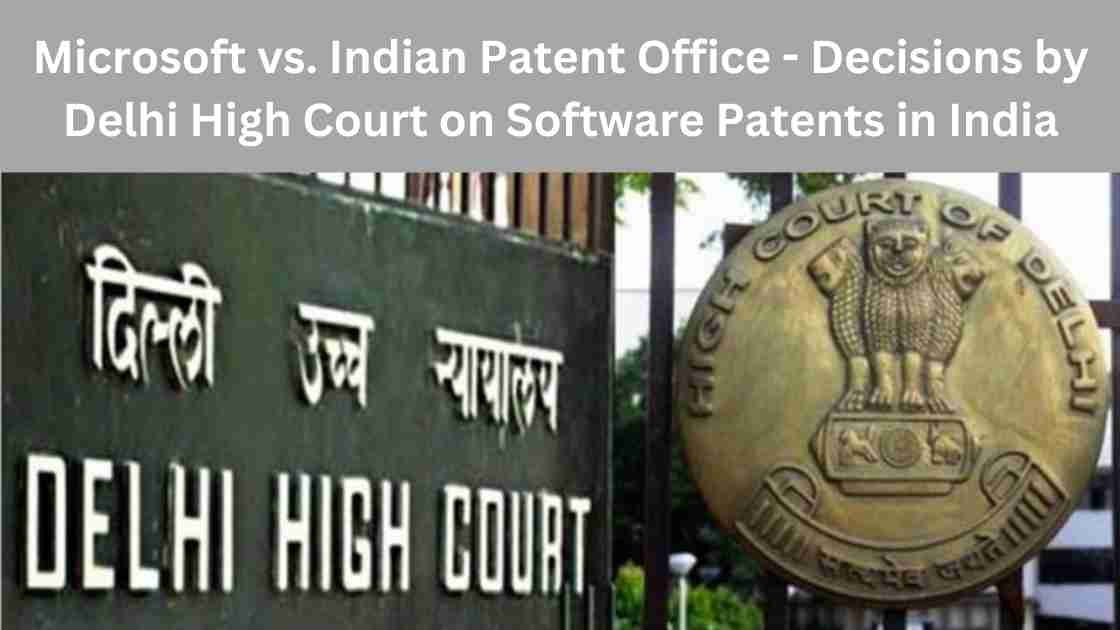Tag: patent filing

The Future of Intellectual Property Law in India: Trends and Predictions
An Overview of Key Developments and Changes in India's IP Landscape As India's economy continues to grow and evolve, so too does its intellectual property (IP) landscape. From new laws and regulations to shifting market trends and emerging technologies, the future of IP law in India is constantly evolving. Here, we take a closer look at some of the key trends and predictions shaping the future of IP law in India. The Rise of Digital IP One of the biggest trends in IP law is the rise of digital IP. With the growing use of digital technologies, including the internet, social media, and e-commerce, businesses are increasingly relying on IP to protect their online assets. In India, this has led to a surge in digital IP-related legal cases, including trademark and copyright infringement, domain name disputes, and cybersecurity breaches. Increased Focus on Patent Protection Another trend in IP law is…

What are Patent Claims and Why Should You Get It Right?
A patent claim sets the boundaries for an invention by highlighting what the invention covers and does not cover. In simple terms, the patent claims define the subject matter (i.e., product or process) for which patent protection is being sought and the rest of the patent specification including any drawings explains the technical details of the invention in detail. Basically, the protection by way of patent grant is given for the claims and not any other part of the complete specifications. Having mentioned that, one cannot simply state statements about the inventions as claims nor one should interpret the term ‘Patent Claim’ to mean as describing what the invention achieves in a broad sense. The Patent Law in general across all jurisdictions require the patent claims to be recite specific technical features of the invention in a techno legal language. One of the main reasons for this strict requirement is…

Increase in Patent Filings by Academic Institutions
Introduction With a plethora of opportunities to quench one’s technological pursuits or showcase the creative abilities of the students, higher academic institutions can be considered to be the powerhouses for generating intellectual property (IP). The extensive research facilities provided by higher academic institutions such as incubation centers, and research sponsored through university and industry partnerships serve as breeding grounds for various breakthrough inventions. Similarly, academic institutions may also give rise to developments in other areas of IP. This may be some literary work in the form of some songs or drama or film scripts or artistic works in the form of a sculpture or even a painting. The list is endless to enunciate the numerous possibilities of IP in any academic institution. Recommendations of National IPR Policy, 2016 It is indeed the above reasons that may have inspired the drafters of National IPR policy to provide certain recommendations on how…

Types of Patent Applications
Now that you’ve decided to go for patent protection, it is time to choose the type of patent application that you’ll be filing. It is pertinent to understand that a patent protects the utility or functionality of a product. If the novelty of the product relates to its ornamental design, you should go for an Industrial Design (also known as a design patent in the US and other jurisdictions) instead. For the purpose of clarity, let’s use the universal term utility patent to identify patent applications defined under The Indian Patent Act, 1970. This article will help you understand different types of patent applications that may be filed under The Indian Patent Act, 1970. If you are unsure whether to go for a utility patent or an industrial design, read this article written by Mr. Harish Naidu, founding partner of Acura IP Services. To know what is a patent…

What Kind of Inventions Can Be Patented?
As an inventor working on an idea or invention, the first thought which is often encountered includes “Is my idea patentable”, “Can my invention be patented”, "what kind of inventions can be patented" and “Is my idea patent-eligible”. The foremost thing which you need to be aware of is that a mere idea or a concept cannot be patented. Your idea or invention should be a: new product; ornew process; that solves a technical problem. You must also be aware that merely a new process or a product in itself will not qualify for an invention, additionally, the invention or idea must also: involve an inventive step (i.e., must not be obvious to a person skilled in the art); andcapable of industrial applications; Again, you may find the above terms such as ‘new product’, ‘new process’, and ‘inventive step’ may not be self-explanatory and still do…

Recent FAQs Published by the Indian Patent Office on Form 27
The Indian Patent Office recently released a comprehensive FAQ document…

A Comprehensive Guide to Patent Searches: Types, Examples, and When to Use Them
Patent searches are a crucial aspect of the patenting process.…

Microsoft vs. Indian Patent Office – Decisions by Delhi High Court on Software Patents in India
The part of this series focuses on the…

Case in Point: Sun Pharma Ltd vs. DWD Pharma Ltd
Case in Point is a new series where…
Categories
Recent Discussions
Recent FAQs Published by the Indian Patent Office on Form 27
The Indian Patent Office recently released a comprehensive FAQ document regarding Form 27, aimed at clarifying the requirements and procedures for patentees and…
Recent Discussions
A Comprehensive Guide to Patent Searches: Types, Examples, and When to Use Them
Patent searches are a crucial aspect of the patenting process. Whether you're an inventor, entrepreneur, or a legal professional, understanding the different types…
